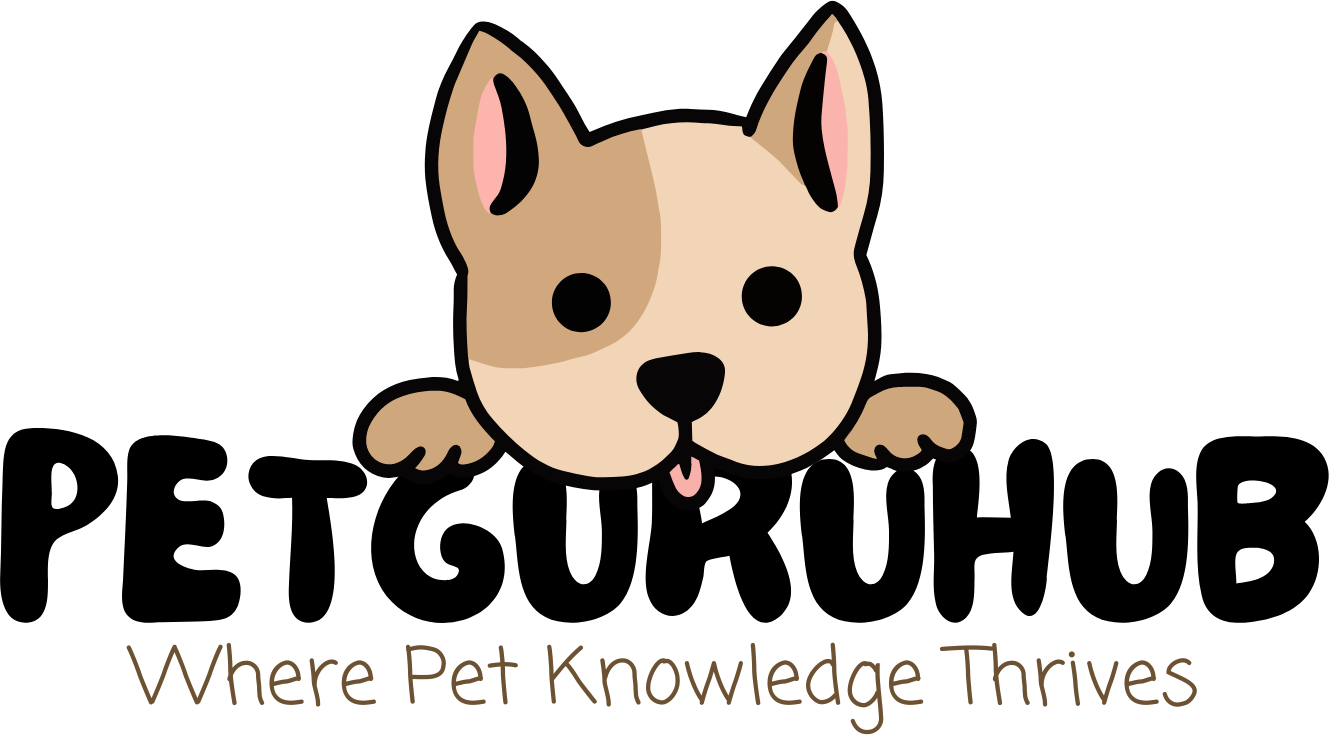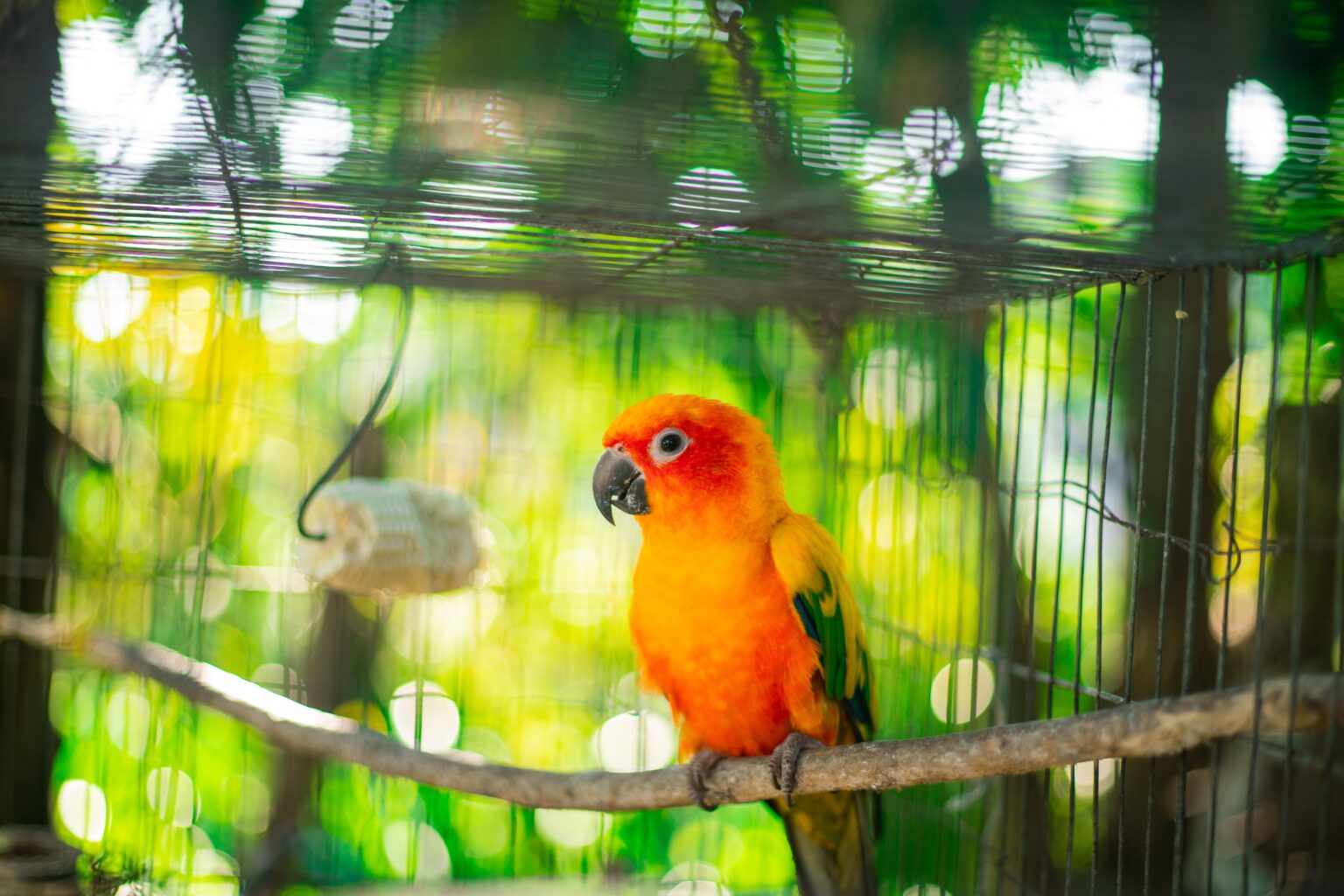Introduction
For centuries, birds have been beloved pets all over the world. Their beautiful plumage, melodious songs, and engaging personalities make them wonderful companions for people of all ages. This article provides a comprehensive overview of pet birds, including different types of birds, their care requirements, costs, and more. Whether you’re an experienced bird owner or looking to get your first feathered friend, this guide will give you the key information you need to successfully care for a pet bird.
Popular Types of Pet Birds
There are many different species of birds that can make great pets. Here are some of the most popular:
Parrots
- Macaws – Large, long-tailed parrots known for their bright colors and loud vocalizations. Require lots of space and attention. Lifespan 50+ years.
- African Greys – Highly intelligent birds that often learn to talk. Medium-sized, grey with red tails. Lifespan 50+ years.
- Cockatoos – Crested parrots, often white or light-colored. Can be very loud but affectionate. Lifespan 40-60 years.
- Conures – Smaller parrots with long tails, popular for their playfulness and bright colors. Lifespan 15-30 years.
- Parrotlets – Tiny parrots under 5 inches long. Quieter than larger parrots. Lifespan 15-20 years.
Finches
- Zebra Finches – Common pet finch with orange beak and black & white barred plumage. Peaceful in groups. Lifespan 5-10 years.
- Society Finches – Small finches with yellow & brown plumage. Social, active birds that travel in flocks. Lifespan 5-10 years.
- Gouldian Finches – Colorful finches with dramatic plumage in shades of blue, green, yellow, purple, and red. Sensitive care needs. Lifespan 5-8 years.
Canaries
Popular songbirds often bred for their beautiful song. Bright yellow plumage. Peaceful in pairs or groups. Lifespan 10-15 years.
Budgies
Also known as parakeets, these small parrots are wildly popular for their low cost and playful personalities. Come in many color mutations. Lifespan 10-15 years.
Cockatiels
Small crested parrots with gray feathers and orange cheek patches. Often mimic speech. Affectionate companions. Lifespan 15-25 years.
Bird Care Essentials
Caring for a pet bird requires preparation and commitment. Here are some key elements of proper bird care:
Housing
Most small-to-medium sized birds need a cage at least 18 inches long, 18 inches wide, and 18 inches tall. Bigger is always better. Horizontal cage bars work better than vertical. Line the bottom with paper or bird-safe litter. Provide multiple perches of varying sizes and textures.
Diet
- Pellets should make up 60-80% of diet. Select a reputable brand formulated for your bird’s species.
- Chop is a mix of fresh vegetables, grains and legumes. Provides variety and nutrients.
- Seed is higher in fat so give sparingly. Use as training treats.
- Fruit provides natural sugars but limit to a few pieces daily.
- Water should be changed daily and supplemented with vitamins.
Enrichment
Birds are intelligent, active pets that need mental stimulation. Provide:
- Toys – wood, rope, bells, etc. Rotate frequently to prevent boredom.
- Foraging opportunities by hiding food in toys.
- Out of cage time for exercise and social interaction.
Grooming & Vet Care
- Trim overgrown beaks and nails as needed.
- Bathe periodically to keep feathers clean and healthy.
- Annual vet exams to check for issues like overgrown beaks, obesity, infections.
- Quarantine new birds for 30-45 days before introducing to your flock.
To summarize, here are some key elements to provide for your bird’s health and wellbeing:
| Popular Pet Birds | Bird Care Essentials | Costs of Bird Ownership |
|---|---|---|
| Parrots – Macaws – Cockatoos – Conures – Parrotlets | Housing – Cage size 18″ x 18″ x 18″ minimum – Horizontal cage bars – Lined bottom | Bird: $20 – $3000 |
| Finches – Zebra finches – Society finches – Gouldian finches | Diet – 60-80% pellets – Chop vegetables & grains – Limit fruit & seeds | Cage: $80 – $600+ |
| Canaries Budgies Cockatiels | Enrichment – Toys – Foraging – Out of cage time | Yearly food: $100 – $300 |
| Grooming & Vet – Nail/beak trims – Annual exams – Quarantine new birds | Yearly vet: $100 – $300 |
Costs of Bird Ownership
Birds and their supplies can be a significant investment. Average costs:
- Bird: $20 – $3000 depending on species
- Cage: $80 – $600+ for larger sizes
- Perches, dishes, toys: $150+
- Yearly food: $100 – $300
- Yearly vet care: $100 – $300
Larger parrots that live 40+ years can cost tens of thousands in lifetime care. Budget accordingly!
Benefits of Bird Companionship
What are the rewards of living with a feathered friend?
Entertainment
Birds are active and inquisitive by nature. Watching their antics provides hours of amusement. Their playful personalities add liveliness to any home.
Companionship
Birds form strong social bonds and many see their owners as lifelong mates. Their affection and loyalty can provide comfort and joy.
Mental Stimulation
Interacting with birds helps keep our minds engaged. Teaching tricks and speech challenges our thinking. Simply birdwatching enhances focus.
Stress Relief
Studies show that time with animals lowers stress hormones and elevates mood. Birdsong and preening are calming behaviors to observe.
Responsibility
Caring for a dependent pet builds character and responsibility, especially valuable for children. Birds live a long time so owning one is a long-term commitment.
Choosing the Right Bird
With so many options, which bird is best for you? Here are some things to consider:
Your Lifestyle
Noisy birds like macaws don’t work in apartments. Busy people may want lower maintenance pets like finches. Don’t get a bird that outlives you.
Costs
Bigger parrots are more expensive to buy and care for. Be honest about what you can afford long-term.
Desired Interaction
If you want a cuddly companion, consider a cockatoo. For an attentive listener, try a Grey. Budgies are energetic and playful.
Commitment
Birds require daily interaction and a permanent lifelong home. Only get one if you can devote significant time and care.
Allergies
Bird dander can trigger allergies. Try spending time with different species first before committing.
Bringing Home Your Bird
Here’s what to do when you bring your new feathered friend home:
- Set up the cage in a quiet area without drafts. Slowly introduce them to the rest of the home.
- Establish a routine for feedings, sleep schedules, and out of cage time. Consistency reduces stress.
- Be patient – it takes time for birds to acclimate to new environments. Use food treats to build trust.
- Gradually introduce new foods, toys and experiences. Too much change at once can be overwhelming.
- Spend time sitting near the cage talking or reading aloud. This helps socialize shy birds.
- If you have other pets, carefully introduce them to the bird to avoid traumatic interactions.
- Consult an avian vet about diet, behavior, and health. Establish annual checkup schedule.
With time, care, and affection, you and your bird will develop an incredible friendship that lasts a lifetime!
Frequently Asked Questions About Pet Birds
How much time do birds need out of their cage each day?
Most birds should spend several hours out of cage daily for exercise and social interaction. Small birds need 2-3 hours, medium birds 3-5 hours, large birds open cage all day.
What temperature do pet birds need to be comfortable?
Ideal temp is 65-75°F. Keep cages away from drafts, air vents, direct sunlight. Some birds enjoy a warm shower!
Is it better to get one bird or two?
Getting two birds provides social companionship so they aren’t lonely when alone. However, bonding with you may be harder.
What are signs a bird is sick and needs a vet?
Lethargy, loss of appetite, unusual droppings, sitting on bottom of cage, lack of singing/chattering. Respiratory distress requires immediate vet visit.
How often should a bird’s cage be cleaned?
Daily cleaning is best – replace soiled substrate, wipe perches, dishes. Full disinfecting clean 1-2 times per week. Rotate toys to keep clean.
Can birds be potty trained?
Yes! Many birds can be potty trained to go in specific spots, though it requires time and positive reinforcement. Some birds even learn to “hold it” for long periods!
Final Thoughts
I hope this comprehensive guide provided you with helpful information on pet bird ownership! Proper research is key before taking the plunge into bird care. If you put in the time and dedication, a feathered friend will bring you years of joy and companionship. Let me know if you have any other questions – I’m always happy to chat more about birds!


